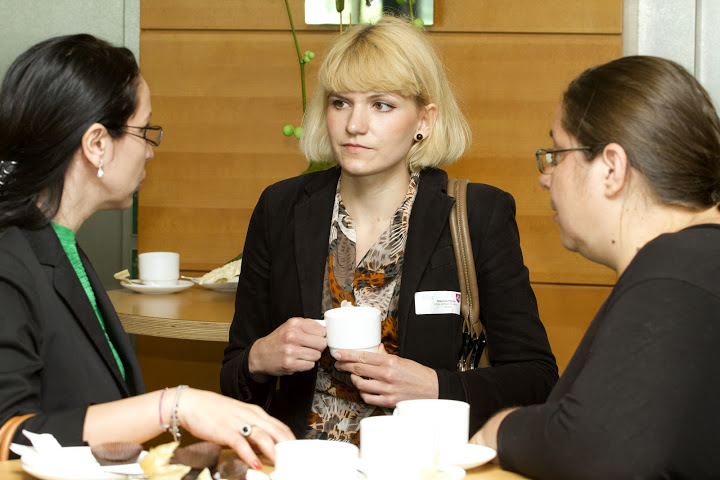Legal Training: Alternative Dispute Resolution, Vilnius
The training was organised for Equinet members on 23-24 May 2012 by Equinet in collaboration with the Office of the Equal Opportunities Ombudsperson in Lithuania.
Summary

World cafe workshop (roundtable discussions)
Equinet has compiled a summary of the training, outlining the main discussions, arguments and ideas from the workshops and plenary sessions. You can access this summary below.
Legal training 2012 Summary
Rationale
Alternative Dispute Resolution (ADR) is a relatively well known concept among legal professionals in Europe today, yet it is fairly undeveloped as a tool for specialised equality bodies dealing with alleged cases of discrimination.
Several aspects of ADR make these methods particularly adapted to resolving discrimination cases, such as their future-oriented character and the acceptance by both parties to the conflict of the adopted solution. Identifying the challenges encountered by equality bodies working with ADR and exchanging experiences on how to overcome these challenges are essential elements to determining to which extent these methods are useful in cases of discrimination.
Target audience and objectives of the training

Participants networking
The training was primarily aimed at staff within specialised equality bodies handling individual cases of alleged discrimination where negotiations between the victim and the accused perpetrator could be envisaged.
The main goals of the training were:
– to deepen participants’ knowledge about different Alternative Dispute Resolution (ADR) mechanisms;
– to discuss advantages and challenges of ADR methods for national equality bodies.
The training was particularly able to enhance participants’ knowledge in the fields of:
– identifying and addressing situations where ADR mechanisms could be effective;
– effectively addressing the challenges surrounding ADR mechanisms in discrimination cases;
– exploring potential solutions to discrimination cases adopted through ADR mechanisms.
Presentations
Keynote presentations in order of appearance:
–

Andriani Papadopoulou – Office of the Greek Ombudsman
Linda Reijerkerk, European Mediation Network Initiative (Netherlands): Defining ADR and its essential criteria – Pros and cons in cases of discrimination (click here for the presentation);
– Michiel Bonte, Centre for equal opportunities and opposition to racism (Belgium): Situating ADR and its strategic use in the work of national equality bodies – A practical experience (click here for the presentation);
– Kosana Beker, Office of the Commissioner for the Protection of Equality (Serbia): A model for mediation developed by a NEB: mediation applicability criteria (click here for the presentation);
– Richard de Groot, Equal Treatment Commission (Netherlands): Potential solutions to discrimination cases adopted through ADR – The enforcement perspective (click here for the presentation);
– Louise Curtis, Equality and Human Rights Commission (UK): Real-life outcomes of a case study on the potential use of ADR in a case of alleged discrimination discussed in Workshop II of the training (click here for the presentation)
Short case studies on the challenges encountered and how to overcome them when dealing with discrimination cases through ADR:
– Laima Vengale-Dits – Office of the Equal Opportunities Ombudsman (Lithuania) – click here for presentation;
– Andriani Papadopoulou – Office of the Greek Ombudsman (Greece) – click here for presentation;
Agenda
The final agenda of the training (23-24 May 2012) can be accessed here.
Photo gallery
A full set of photos from the training can be accessed below (right-click to open in new tab).
 |
| 2012 Equinet Legal Training on Alternative Dispute Resolution |

